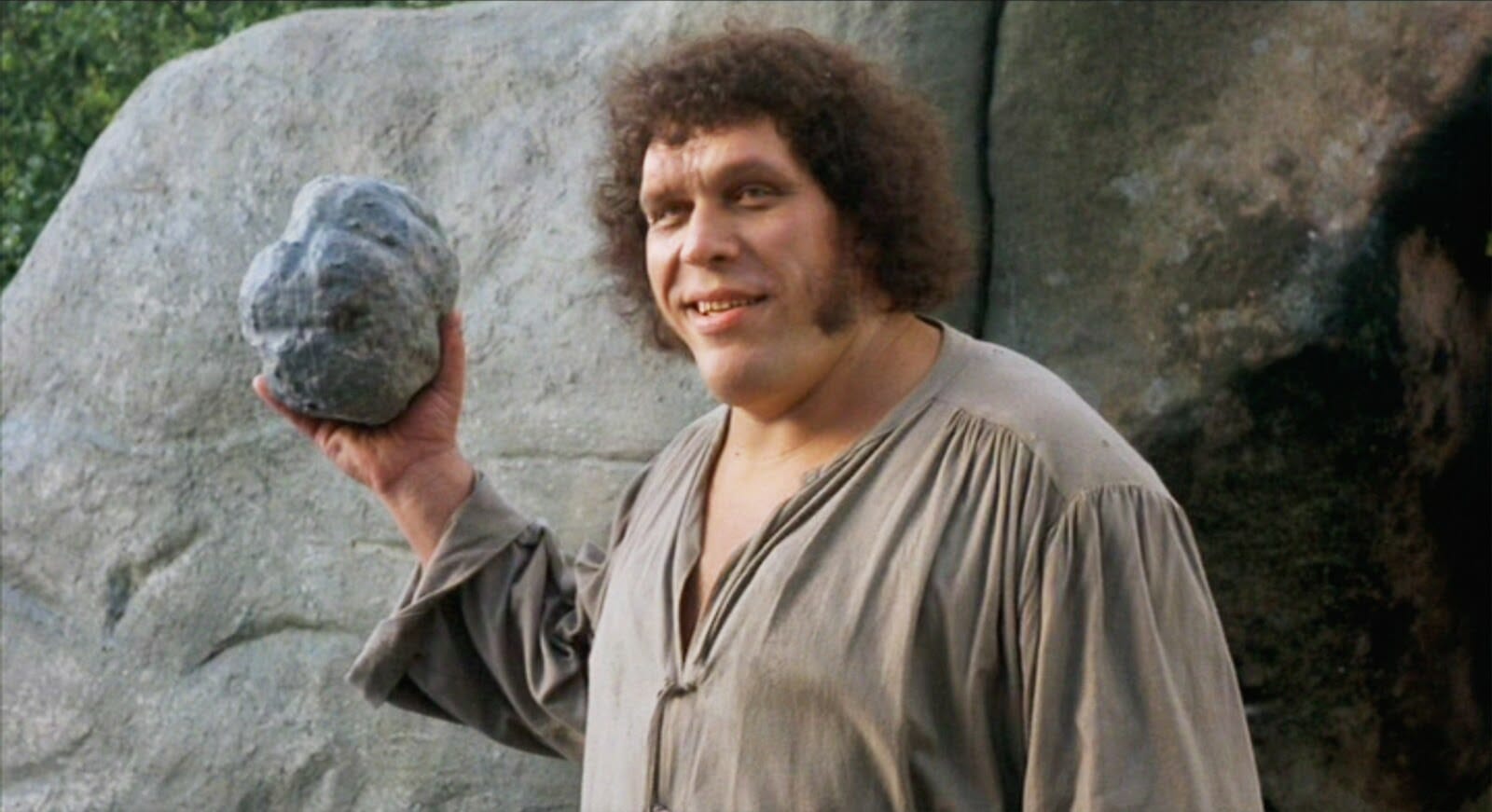The show’s good btw…
I disagree. “No longer” implies we were ever capable
We can but the solver won’t come from the mainstream, it’ll come from the edge. One of those insane weirdos that everybody knows is badwrong.
So be kind to weirdos.
The normies you can safely pound to paste tho.
I’d disagree. If you look at the problems which create existential problems for “our civilization” (more on the scare quotes in a minute), the list is pretty short.
-
Nuclear war - This is existential to both civilization and to humanity as a species. Fortunately, this one is pretty easy to forestall: don’t fucking do it. And that’s actually been working out OK for the last few decades. For as insane of a system as Mutually Assured Destruction (MAD) is, it’s also been pretty successful. Once every nation knew that using nuclear weapons in war meant everyone loses hard, they never got used again. Prior to that situation, they got used. And, there is no reason to believe that the US wouldn’t have used them again, if the USSR didn’t also have their finger on The Button. Sure, universal disarmament sounds like a better solution, but that also assumes everyone is willing to act in good faith. Just one bad actor and that all falls apart. And you can pretty much assume that there will be plenty of bad actors.
-
Climate Change - Depending on how bad this gets, it might rise to the level of “existential threat”. But, most of the currently likely outcomes are probably not. This isn’t to say they aren’t bad and really horrific for a lot of people. But, even looking at something like a 2C rise over the next century, it’s probably not going to cause the outright collapse of most major countries. Anyone not living in the US, China, India or a Western European country is fucked. Water shortages and famine in Sub-Saharan Africa are going to rise to levels completely unprecedented in history. But, from a question of “will society collapse”? The answer is “probably not”. Though the surviving societies will only do so by accepting a mountain of corpses on their doorstep. And even some of the major countries might end up collapsed due to resource wars.
-
Astronomical Events - Throwing this in to avoid the “but actshuly” responses. Yes, if we suddenly discovered a big ass rock headed our way, we’re likely fucked. Also, if we get caught by a massive gamma ray burst, we’re all gonna get turned to jerky. But, these are so low likelihood events as to not be worth worrying about.
Other than that, there isn’t all that much which could really wipe out all civilization, everywhere, at once. And this is where I get back to those “scare quotes”. We don’t really have one single civilization on Earth. We have a bunch of them which interact in lots of ways. While that interdependence does make things a bit fragile, it also means that there is a higher degree of redundancy. If the US went tits up tomorrow, it would have some major impacts on China, India and Western Europe. But, each of those areas has a reasonable chance of adjusting and and continuing on. There may be a lost decade or three while supply chains adjust and new infrastructure is built out, but there is nothing wholly unique to the US which couldn’t be replicated elsewhere. And depending on how the US failed, the useful bits of the US economy might well be able to be rebooted by someone else. Again, there is probably a lot of death on the table, the US is a major food exporter, after all. But, China already has a history of weathering millions of people dying to famine, I’m sure the PRC government could figure out a leap forward. An with such useful farmland in the US, one would expect farms to pop back up and get producing pretty quick. Maybe not at the level of output which the US currently has, but if we’ve killed off half or more of the US population, then we have a bunch of useful farmland with a lot less people to feed.
-
No.
The only pressing problem we’re at the threshold of being unable to solve is climate change.I still stand that if politicians would grow a backbone, most of the problems we have would be solved overnight.
if politicians would grow a backbone, most of the problems we have would be solved
Politicians aren’t scared to do what’s right. Their job is to act in the interest of their fellow elites. The most successful at empowering their fellows are given more power. Solving society’s problems isn’t remotely on the agenda.
If anything, we want more cowardly and timid elites. Politicians with a backbone are just more dangerous predators.
I disagree. I see problems solved all the time.
(Squints) What do you mean by “solved”?
I mean, we’re pretty good at math. We can “solve” math problems. But when the math is applied and we choose to do the opposite of what the math says, then we’ve not “solved” the problem, we legitimately make it worse.
See also: climate change, housing bubbles, food insecurity, pay equity, universal childcare, universal healthcare, universal pharmacare, student to teacher ratios, media consolidation, and most other market-based solutions.
e: and, as said below, war. That math only maths when dominating “others”.
Capable? Yes. Willing? No.
Could not have said it better.
If a civilization chooses not to be civil … why call it a civilization?
That’s just not how language really works, Axl.
Me fail English? … That’s unpossible
Because they have civilians
I think Capable should be downgraded to a Maybe at this point…
Those were the delusional words of someone who lived in an upside down country. Kinda agree but if a single country fails, humanity doesn’t get extinguished.
Think about climate change and reevaluate that position. There is no feasible way that the countries of the world will get together and all agree to do anything meaningful about it because anything MEANINGFUL will result in mass death. There’s really no other way around it. Which is why everyone is dragging their feet. Who wants that? Who wants to be responsible for that?
Earth’s climate has changed many times before and life found a way, regardless.
People who hate themselves and have low self steem say that humans are cancer but the real cancer are the doomers that only sigh, complain and lie flat without doing anything to help because they think everything is doomed. Well, aside from the usual corporate billionaire cancer from crapitalism
Humanity fuck yeah.
Our civilization is more than capable, but those who have money and power are unwilling, because that’s not something they’re interested or invested in.
Distribution of money and power is a facet of society.
I disliked the books and haven’t tried to watch the show.
But I think I disagree that our civilization is no longer capable of solving it’s own problems. Rather, I think our civilization is going through one of the crappy parts of common cycles that civilizations go through. Frighteningly, this part usually comes right before really scary crappy parts.
Civilizations aren’t static and the patterns don’t always happen the same way, but I think we can predict that
-
Things get really shitty. People pull together for survival and build to a place of stability and prosperity.
-
The rich and powerful (being short sighted idiots just like the rest of us, but ALSO insulated from and out of touch with reality), start looting society for their own selfish, short term benefit. This destabilizes the institutions and systems creating the stability and prosperity. The population at large doesn’t really understand what’s happening or why, but they DO know that while they’re still relatively comfortable, they’re scared and they don’t like it. They get more conservative and eventually turn to fascists, strongmen and authoritarians to try to get stability back.
-
This doesn’t work out. It exacerbates the existing problems, makes things even more scary and less stable. Eventually war and rebellion break out.
-
When the dust settles, things are really shitty. People pull together for survival and build back to a place of stability and prosperity.
These steps aren’t exact. They’re trends. Lots of things can disrupt them (including famine, war and barbarian invasions). But in step 1/4, we (humans) are actually REALLY good at collectively solving problems. In step 2 we’re TERRIBLE at collectively doing anything. In step 3 we (collectively) are trying to solve all the WRONG problems… then back to step 1/4.
We seem to globally be right at the tail end of step 2. Which SUCKS.
tl:dr; This has all happened before and will surely happen again. Hostile aliens are just a modern take on the “barbarian invasion” disrupter. Beware of strangers bearing gifts.
Theorists and futurologists refer to it as the ‘Great Filter’ … a series of challenges that civilizations go up against which determines if they make it past the filter or not.
Our current filters are climate change, nuclear war and artificial intelligence … will we use nuclear tech or AI to benefit ourselves? Will we work towards dealing with climate change? or will us acting negatively with all this be the cause of our regression … or destruction?
We have equal capability at this point … we are just as capable of collectively solving these problems … or using them to destroy ourselves.
Our collective futures are most definitely in our own hands … whether or not we use those hands for good or ill is up to us.
AI right now is not a challenge. It’s inflated vapourware.
deleted by creator
-
Human civilizations have only been around for a couple thousand years. That’s nothing.
Human civilizations have only been around for a couple thousand years.
L M A O
Civilization is one of those great words (like Innovation) where if you’re using it, you’re definitely using it wrong.
When you say civilization, do you mean: The State, Justified Violence, Official Oppression, Bureaucracy, A Standing Army, Cultures you Agree with, or just Table Manners?
So do you agree or… you’re just making another statement.
Pasta in all its forms is delicious but I especially love spaghetti
Sorry, by “that’s nothing” I meant to imply that it’s too soon to tell.
The whole “good times create weak people” is fascist propaganda.
It’s both capable and willing, the problem is that not everyone agrees with the solutions being used. And so they say “we’re doing it wrong” instead of “I think we’re doing it wrong.”
I mean, not everyone agrees what the problems are. We can’t even approach talking about solutions until we settle on the problems. And that problem seems to be getting worse.
We can solve problems, the status quo is just to profitable for those in power. Don’t you find it strange how the status quo persists despite both mainstream political parties running a Change candidate for president and winning? (MAGA is the shitters form of change, just in the wrong way)
Clearly the people are looking for solutions, even if they don’t know the answers.
Consider watching a video on first past three post voting. If we change how we vote in each of our individual states , people can vote for 3rd parties and still have their vote count if their preference didn’t win. No spoiler effect!
deleted by creator
I can give you the only true answer to your question of “what can I do today to help fight climate change?” But you won’t like it and this ‘solution’ does not preserve society in really any meaningful way, however it does help to address climate change and prevent the entire natural world from dying of heat stroke. So the question becomes, what do you want to save? You can’t save everything and trying to do so will only result in you saving nothing.
The answer is large scale industrial sabotage. And when everything grinds to a halt and people start starving to death because of no industrialized food production and various other factors, you will regret the actions. As you and your own family fall victim to violence over food or land because everyone is panicking and trying to survive, you will likely regret it more. But then in 1000 years, there may still be people alive to call you a monster, if they remember you at all.
Or you could mandate that corporations, instead of being legally required to make the line go up at the expense of anyone they can exploit, are required to pursue less environmentally destructive practices. I wouldn’t be surprised if a number of them already did research on this but found it impacted their bottom line and dismissed it.
deleted by creator
I’m fucking laughing out loud reading this comment.
What I’m hearing you say is, we can solve our own problems, we just need human nature to be different. Which, well… Good luck.
deleted by creator
Come on. The way humans behave in groups is certainly part of human nature. And when we’re talking about solving problems of a society, it is the most relevant part.
deleted by creator
No problem is ever solved no solution has ever been without further problems.
This is indicative of an ever expanding problem-solution matrix of entropy, meaning we’re neither solving issues nor creating problems, we’re just creating more complex landscapes to navigate.
This is why Buddhist monks and high tech computerized supply chains can both legitimately be said to have the answers we need, even though they’re from radically different ends of this entropy.
It’s also why they’re both wrong and lying to themselves.
We are both the problem and the solution.











